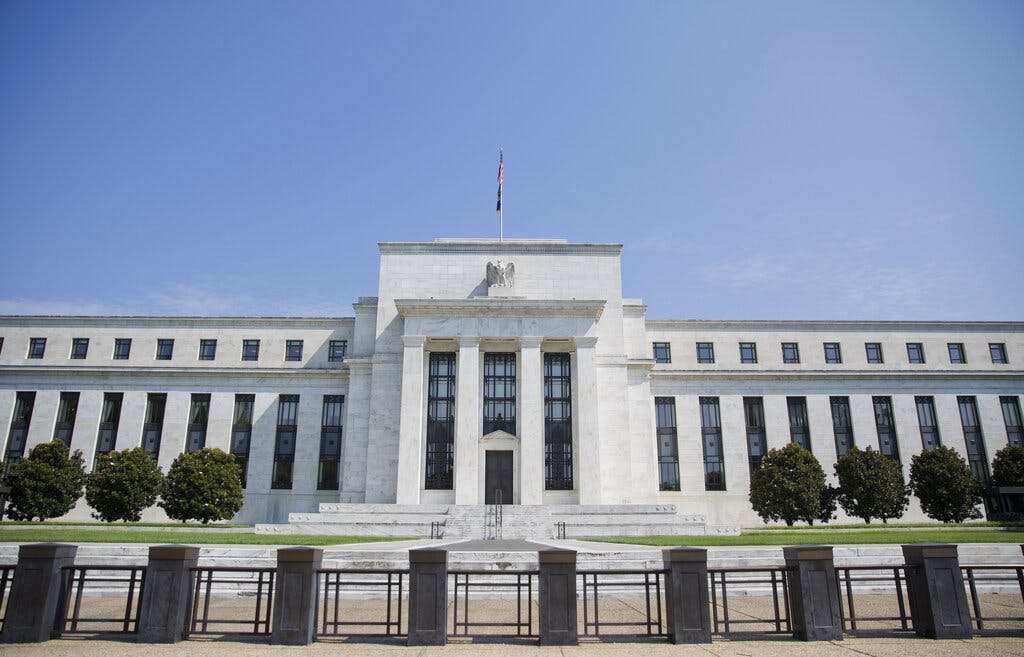Top Republican Alleges China Has Been Spying on Fed for At Least a Decade
A report charges that China uses the Federal Reserve’s collaborative research policies and programs in myriad ways to get inside information on the bank’s inner workings.

China for at least a decade has been attempting to recruit spies or otherwise infiltrate the U.S. Federal Reserve in an effort to glean inside information on American monetary policy and other sensitive economic data, according to a report released Tuesday by a Republican senator on the homeland security committee.
Senator Portman of Ohio said his report, based on the Fed’s own counterintelligence analysis, documents the myriad ways in which China uses the Fed’s collaborative research policies and programs to get inside information on the bank’s inner workings, including decisions of the Federal Open Market Committee that set interest rates and U.S. trade policy surrounding tariffs.
In one case, the report alleges, a Fed employee who was participating in a visiting professorship at a Shanghai university was forcibly detained on four occasions and pressured to provide information on tariffs and the activities of the Open Market Committee. Chinese officials reportedly threatened the employee’s family, tapped his phone and computers, and copied the contact information of other Federal Reserve employees in his possession.
The employee reported the incidents to the bank on his return to America, and both the FBI and the Department of State were notified. The intention of these interactions, and others, was to develop a network of informants inside the bank, the report claims.
Mr. Portman said his report “makes clear that China’s malign efforts at influence and information theft are not limited to science and technology fields — American economic and monetary policy is also being targeted by the Chinese government.
“The Chinese government is using every tool at its disposal to infiltrate and steal valuable information,” he added. “We cannot let the American taxpayer continue to unwittingly fund China’s military and economic rise, which is why our report makes strong recommendations to enhance and protect our Federal Reserve.”
In a letter responding to the report, the Fed’s chairman, Jerome Powell, pushed back against its accusations and said staff with access to sensitive information undergo regular background checks.
“We are deeply troubled by what we believe to be the report’s unfair, unsubstantiated, and unverified insinuations about particular individual staff members,” Mr. Powell wrote. “Because we understand that some actors aim to exploit any vulnerabilities, our processes, controls and technology are robust and updated regularly.”
Mr. Portman said his report was a follow-up to a similar one in 2019 that alleged China was using various talent exchange programs, such as the Thousand Talents Program, to target America’s science and technology sectors for industrial espionage. The report claims China used similar programs to target the central bank as far back as 2013.
In his letter, Mr. Powell acknowledged that staffers at the bank are encouraged to participate in such exchange programs with other central banks around the globe, but that such interactions are subject to strict information security protocols and any violations of those protocols are immediately investigated.
In addition to the detained individual, the report states that multiple bank employees maintained contacts at the Peoples Bank of China and academic organizations tied to the Thousand Talents Program. It found instances of employees with “extensive and unusual travel patterns in China” and access to sensitive, non-public bank information attempting to transfer large volumes of data to external sites.
One with access to what was described as data that would be of “high value to an adversary” was asked for information on the views on interest rates of three Federal Reserve bank presidents by individuals with ties to the Chinese Communist Party.
When confronted about some of their suspicious activities, the report said at least one employee resorted to what was described as “adversarial tradecraft” — changing emails and switching to unmonitored communications channels — and another began browsing articles online about about individuals arrested for economic espionage and the consequences of selling confidential information to foreign adversaries.
Since the committee began its investigation, Mr. Portman said the Fed has implemented new policies prohibiting employees from accepting payment from overseas institutions in “countries of concern” such as China, but its participation in talent recruitment and other international exchange programs continues.
“I am concerned by the threat to the Fed and hope our investigation, which is based on the Fed’s own documents and corresponds with assessments and recommendations made by the FBI, wakes the Fed up to the broad threat from China to our monetary policy,” Mr. Portman said. “The risk is clear: I urge the Fed to do more, working with the FBI, to counter this threat from one of our foremost foreign adversaries.”

